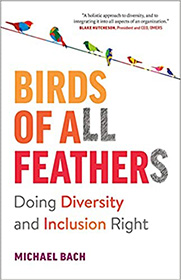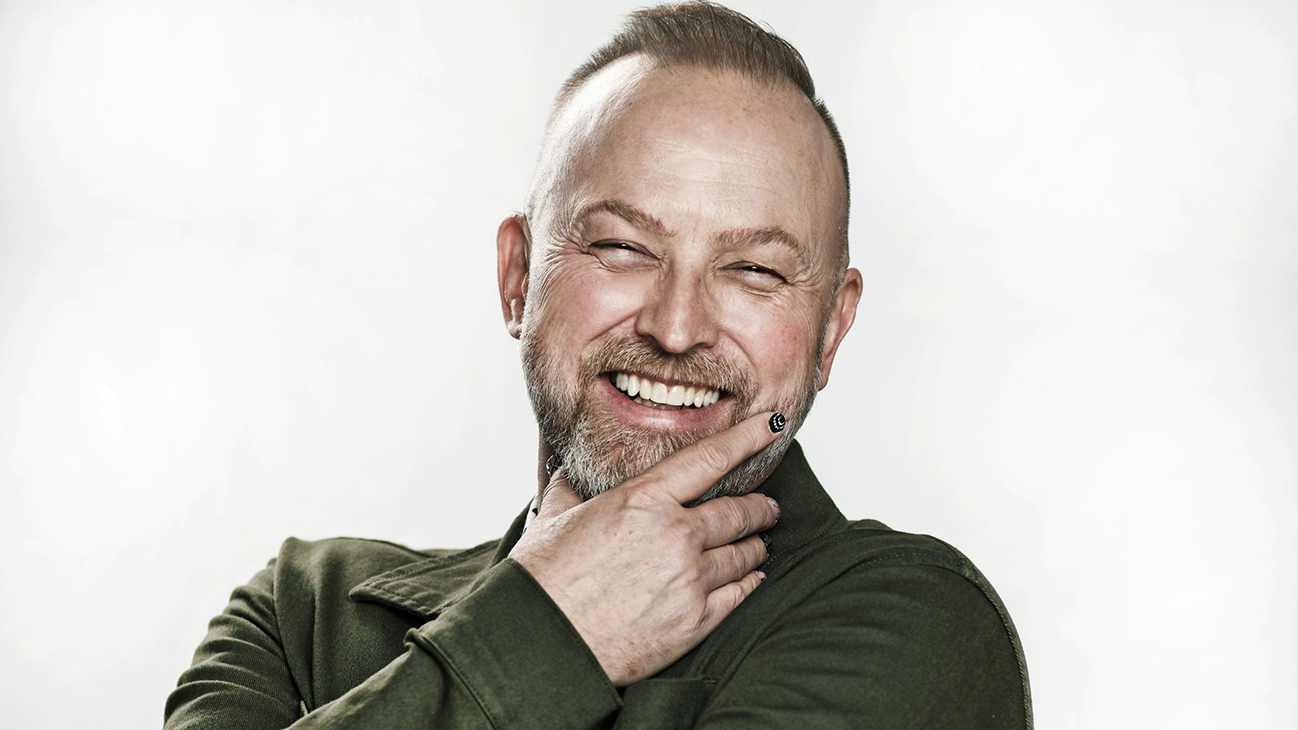With nearly 20 years of experience within the inclusion, diversity, equity, and accessibility (IDEA) space, Michael Bach is a nationally and internationally recognized IDEA thought leader, celebrated for his vast knowledge of leading practices in creating equitable workplaces. He was recently named one of the 10 most influential DEI leaders revamping the future in 2023 by CIO Views.
Michael has long held a passion for DEI, crediting his parents for instilling a responsibility within him to give a voice to those that didn’t have one or weren’t being heard.
“I’m white, a cisgender-presenting man, and physically able-bodied. My parents, particularly my mother, recognized that those identities came with a lot of privilege,” he told CIO Views. “She raised me to believe I had a responsibility to use that privilege to the advantage of others.”
Turning a Passion into a Career
It was while working for KPMG in their IT consulting practice that Michael was finally able to put his passion to work. He along with a group of fellow employees started pride@KPMG, an employee resource group for the LGBTQ2+ population and their allies. It was through this group that Michael realized IDEA was a expanding field he very much wanted to be a part of.
“I went to the head of HR and said, ‘You know, if we’re serious about diversity, we need full-time resources, and I want that job.’ I then wrote the business case for the creation of a role, and they hired me into it, and I haven’t looked back,” Michael said.
Michael became the National Leader of Diversity, Equity, and Inclusion for KPMG Canada and spent 2.5 years as Deputy Chief Diversity Officer for KPMG International before opening his own agency, the Canadian Centre for Diversity and Inclusion (CCDI) and later, CCDI Consulting. He has since advised thousands of leaders across industries on how to do IDEA right.
Building a Powerful Legacy
When Michael first began CCDI, he sought to do things differently. If they wanted to help leaders cultivate an inclusive and equitable culture, then they had to do it first and become the employer they always wanted to work for.
“All the things we told our clients they should be doing to create inclusive environments, we were doing ourselves. It wasn’t always perfect, but we tried hard to create an inclusive environment where people felt like they belonged. The culture was a critically important piece of it, and the result was that we had a very diverse organization.”
Michael left CCDI in late 2022 and is now concentrating on his work as a keynote speaker, private consultant, and writer. He is the bestselling author of Birds of All Feathers: Doing Diversity and Inclusion Right and Alphabet Soup: The Essential Guide to LGBTQ2+ Inclusion.

Throughout his DEI consulting work, Michael found that he was being asked the same questions over and over again. It was these questions he sought to answer in his first book, Birds of All Feathers, with his target audience being small to medium-sized employees who may not have the resources to hire their own DEI team.
“My objective was to say, if you read this book, you should be able to do this work in diversity and inclusion by yourself. You wouldn’t need to hire a consultant and can figure it out on your own. I’m now in my early 50s and worry that I’m not seeing enough change in my lifetime. So, I laid out a roadmap, largely because I wanted to have a bigger impact and see some change,” Michael said.
Michael expanded on this in his second book Alphabet Soup. “I want to help take some of the fear out of the conversation around sexuality and gender in general,” he said. “My objective is to change people’s perspectives, considering what’s been going on of late in the US. This year alone, over 500 pieces of anti-LGBTQ+ legislation have been introduced in the United States. We take one step forward and ten steps back.”
Moving IDEA Forward
Reflecting on his career, Michael said he is honoured and humbled to have worked with so many wonderful people over the years and takes particular pride in CCDI. “I saw a gap in the market, recognized that we needed something, and started an organization that filled that gap,” he said. “CCDI has subsequently become the preeminent organization on diversity and inclusion in Canada. They are admired worldwide, which I take great pride in, and that’s the biggest feather in my cap.”
The road to change has been a slow one, Michael acknowledges, but we are making progress. For leaders looking to advance IDEA in their workplace, he offered three insightful pieces of advice based on his own experiences:
- Don’t overcomplicate things. We, as a society, overcomplicate things. I don’t believe that this work needs to be that complicated. It can be simple and impactful, so if we can focus on the simple, it’s more effective.
- Don’t make it about you. We all approach life through self-interest, which is very natural. The effective way to do this work is not to ask what’s in it for me. It doesn’t matter if there’s anything in it for you. I’ll mentor somebody or go for coffee, and they’ll say, what can I do for you? My answer is that you don’t need to do anything for me. I’m good. I think it’s so valuable to have that attitude, to pay it forward and not feel like you have to get something out of it.
- Celebrate your wins, no matter how small they are. Celebrating wins is crucial because they don’t always come as quickly as we want. You have to celebrate the small wins to keep you going. Otherwise, it’s a pretty thankless profession at times, and attaching yourself to those wins, you know that you did something good. That’s what matters! It’s those wins, those moments when somebody says this matters and thanks you for what you’re doing.
As a keynote speaker, Michael helps audiences jumpstart their IDEA journey through his six-step model. He also presents a clearly articulated business case for IDEA, based on data and research, that shows why any employer not only should but must focus on IDEA to ensure success in the future of work.
If you’re looking to start, elevate, and/or enhance your DEI strategy, contact us to learn more about Michael and how he’s helping workplaces transform into welcoming, inclusive, and psychologically safe spaces for all.




